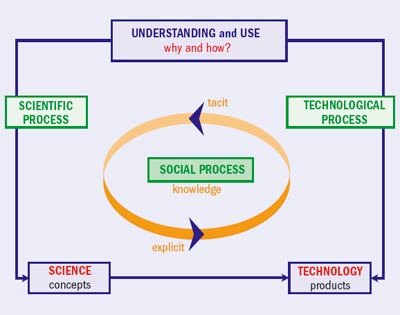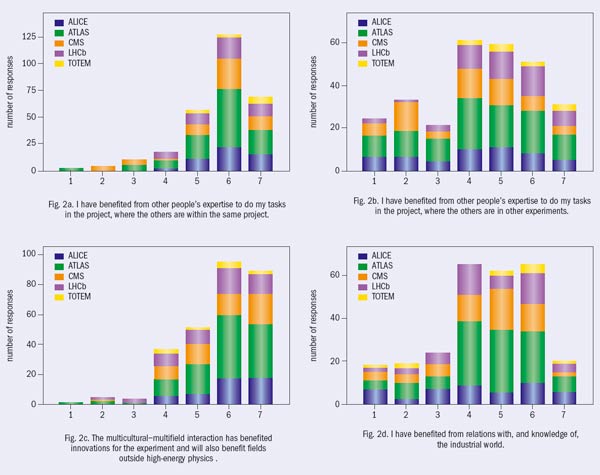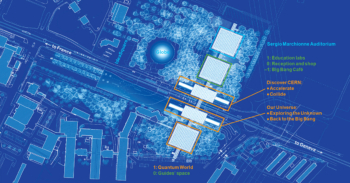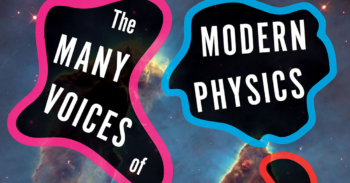Insight into the generation of know-how in five LHC experiments.
There have been many studies of economic returns to member states from purchasing. The most recent report to be published clearly indicates that European industry values highly the benefits that result from technological learning. In the LHC experiments almost half of the participants are from non-member states of CERN and many contracts are placed in nonaffiliated countries. Thus the spillover of technological learning from high-energy physics now extends worldwide. However, CERN’s potential may well be underutilized when it comes to industry.
It could probably enhance the spectrum of its technological impact by paying more attention to the management of technological learning and by fostering more-explicit exchanges of new technological developments outside the needs of just the purchasing sphere. This is particularly important today because developments in high energy physics can take up to 20 years before their impact is felt outside the field.
The basis for the study
A recent study by Helsinki University and CERN, entitled Knowledge Creation and Management in the Five LHC Experiments at CERN: Implications for Technology Innovation and Transfer, has made a detailed analysis of knowledge transfer in the context of the LHC experiments ALICE, ATLAS, CMS, LHCb and TOTEM. This both conceptualizes and confirms with quantitative data CERN’s role in the creation of knowledge.
Each year hundreds of young people join CERN as students, fellows, associates or staff members taking up their first employment. This continuous flow of people – who come to CERN, are trained by working with CERN’s experts and then return to their home countries – provides a useful example of knowledge and technology transfer through people. The new study provides evidence that the social process of participation in meetings, the acquisition of skills in different areas and the development of interests through interaction with colleagues are key elements in the learning process.
The study analysed 291 replies to a questionnaire handed out during LHC-experiment collaboration meetings, which asked questions concerning individual perception and assessment of knowledge acquisition and transfer, as well as the means used to communicate knowledge. The respondents consisted of CERN users (79%) and staff members (21%), with 80% of them physicists. Some 70% of respondents were younger than 40.

Figure 1 illustrates the model for the pattern of knowledge acquisition and transfer on which the study was based. It is important to underline that within this scheme, and indeed in general, only individuals can create knowledge, which expands from tacit-to-explicit knowledge through social interaction. Tacit knowledge is essentially individual and cannot necessarily be communicated and shared in a systematic or logical manner. It has to be converted into words or numbers that are understood easily enough to be shared and become explicit. However, not all individual tacit knowledge becomes explicit. Explicit knowledge is something more formal and systematic. It can be expressed in words and numbers, is easily communicated and shared in the form of written and spoken language, hard data, scientific formulae and codified procedures.
For organizations to be effective in the process of knowledge transfer they must provide a context in which individuals can hold both formal and informal discussions to steer new ideas as well as foster collective learning. Economists and sociologists see this knowledge generation as being particularly important because it underlies societal and technological innovation and is of relevance to the industrial and wider world. One of CERN’s core assets is individual and organizational learning – the latter being the social process where a group of people collectively enhance their capacities to produce an outcome. The creation of organizational knowledge amplifies the knowledge that is created by individuals who spread it at the group level through dialogue, discussion, experience sharing or observation.
Learning benefits

Large experiments, such as those at the LHC, form the hub of an institutional and organizational network. The interactions between individuals – both among teams and within teams that share a common interest – as well as between experiments, are important routes for knowledge transfer, according to the study (figures 2a and 2b).
Such interactions are enabled by the organizational structure of the collaboration and by the frequent use of modern communication tools, such as e-mail and websites. Furthermore, the results indicate that knowledge acquisition in the multicultural environment plays a mediating role in the interaction between social capital constructs (social interaction, relationship quality and network ties) and outcomes related to competitive advantage (invention development and technological distinctiveness). In short, the fertile environment of the LHC experiments fosters a dynamic, interactive and simultaneous exchange of knowledge both inside and outside the collaborations (figure 2c).
Individuals can create and expand knowledge through the social process, which also involves industry at various phases of project development. The study was unable to assess the interaction with industry completely because it was carried out towards the end of the installation phase, when R&D was over and most of the important, challenging orders had already been placed. There was, therefore, not much need of follow-up and contact with industry. Nevertheless, the respondents generally agreed that they had benefited from relationships with and knowledge of industry (figure 2d). It was clear that only a select group of people had been in charge of relations with industry; the scarcity of data (for the reasons explained previously) did not allow their profile to be characterized.
The study also assessed the personal outcomes of knowledge transfer, which were found to be substantial in all of the experiments. These were evaluated in terms of the widening of scientific interests and knowledge; the expansion of social networks; and the enhancement of scientific skills at many different levels (planning, data analysis, paper writing) with the acquisition of new technical and technological skills. These positive outcomes span a wide age-range, demonstrating a benefit to both young and experienced physicists. The domains of useful technological learning ranged from physics to detector technologies, electronics, information technologies and management. The many innovative developments can be categorized as follows: 41% in detector technologies; 33% in computing; 25% in electronics: and 1% in other areas.
The results also show the importance of management in large physics collaborations (94 of 291 respondents had a management and co-ordination role in addition to their physics or engineering functions). Almost 50% of the respondents underlined the positive effect on their career of having performed managerial functions.
The development of these personal skills, which fall into four categories (learning technical skills, learning scientific skills, improving social networking, and increasing employment potential in the labour market) should be managed, used and catalysed to target individual development to improve opportunities in the labour market for individuals working in high-energy-physics environments. The researchers who responded to the study also showed a certain amount of entrepreneurship, with a positive approach towards going to work for companies or towards creating their own company (˜6%). Of those who would consider going to work for a company, about half are below the age of 55. These results should encourage further research studies into how best to foster learning and innovation of “big science” enterprises.
Further reading
To know more about the results of the enquiry, see http://cdsweb.cern.ch/record/1095892?ln=en</a >.





